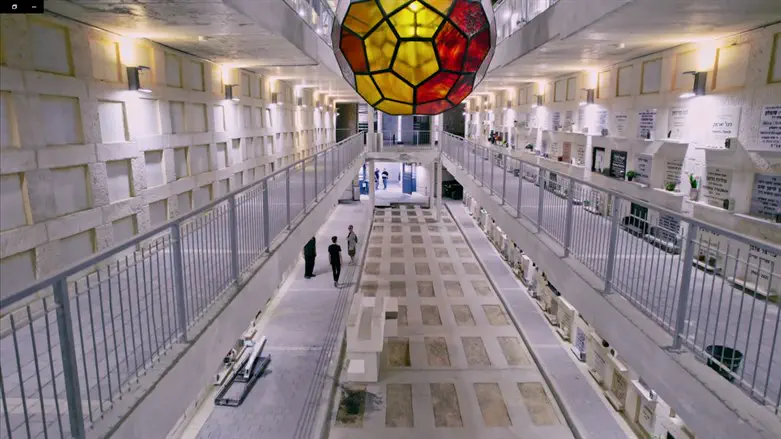
There are so many Jews who, during their lifetime had a strong desire to live in Israel but who were prevented from doing so by myriad practical considerations. Nothing could be more appropriate than to respect the wishes of those Jews and provide them with their greatest desire: burial in the Holy Land, all the more so if they have children or grandchildren living in Israel who will be able to visit their grave.
Contrary to common belief that burial in Israel, not to mention Jerusalem, is prohibitively expensive, Rabbi Moshe Shimon, CEO of the Jerusalem Burial Society, states that this is not necessarily the case. “We have various options and price ranges for burial on the centrally located Har Hamenuchot cemetery in Jerusalem,” says Shimon, “from graves under the open sky to catacombs built underground with cutting-edge technology.”
The latter is a very recently completed, state-of-the-art project, aptly named Hallowed Halls of Eternal Life (Minharot Olam). The first of their kind in the world, the Halls allow for dignified burial in accordance with the strictest standards of Jewish law, approved by Israel’s Chief Rabbis.

The Hallowed Halls are truly a marvel of modern engineering, fully accessible by elevators and golf carts. Closed-circuit cameras, 24-hour security, and an intercom system allow for peace of mind. WiFi and cell phone reception are available throughout the complex. Innovative thermostat technology maintains an even temperature of 72 degrees F year-round, so that funerals and memorial services can be held without concern for rain, heat or inclement weather.
Aside from being modern and well-lit, the Hallowed Halls are adorned by a magnificent art installation created by world-renowned artist Gabriel Yvelle. Crafted painstakingly from thousands of pieces of metal and colored glass, the huge embryonic spheres symbolize the circle of life and eternal light (ner tamid).
As technologically innovative as the Hallowed Halls are, Shimon notes that this underground cemetery is in fact the revival of an ancient tradition. “The first burial mentioned in the Torah was in a cave, Me’arat HaMachpelah,” he says. “That’s not very different from what we do today.”
The Jerusalem Burial Society is the largest burial society in Jerusalem and the second-largest in all of Israel. Their staff, which deals with the majority of burials in Jerusalem, is available 24/6 to assist mourners during their most difficult time.
Founded 80 years ago by a group of rabbis and other prominent public figures, the Jerusalem Burial Society takes families’ individual desires into consideration while remaining within the parameters of Jewish law. “We provide options for all families and communities, and cater with the utmost sensitivity to the individual desires and needs of the mourners,” Shimon assures.
